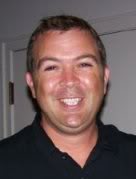FSWA Nears Hall of Fame Reality
Monday, February 1st, 2010 The idea of a Fantasy Sports Writers Association hall of fame has been tossed around for a while. It predated current FSWA president Mike Beacom’s tenure, but the process had trouble getting ironed out.
The idea of a Fantasy Sports Writers Association hall of fame has been tossed around for a while. It predated current FSWA president Mike Beacom’s tenure, but the process had trouble getting ironed out.
Beacom says that the ironing is finally done, however, aided by a board meeting at the recent Fantasy Sports Trade Association conference in Las Vegas.
“We’re finally at a point where we’re there,” Beacom told FSB.com on Monday. “The great thing about it is that everyone is genuinely excited.”
He said there’s never been a lack of support for the idea but that details such as how to select the class, what criteria to judge on and how to make sure the honor is properly recognized drew the process out a bit.
The group is now moving into the final stages of naming a 2010 induction class, however, and part of the discussion and planning to this point has been making sure that there are no interruptions to the process once it gets rolling.
“This is something we’re committed to every year. We want to build a history,” Beacom said. “This is something we’re going to make a big deal out of. We want the individual that gets inducted to feel as special as we consider it.”
So, what will the process look like?
For starters, the hall is being put in place to honor fantasy industry veterans who have made a significant and lasting contribution on the editorial side. The focus will often be on prominent writing accomplishments, but the FSWA will also seek to honor those who helped create opportunity for writers in various ways. The “veteran” portion is important, too, as eligibility can only be triggered once someone has 10 full years of service in the industry.
A volunteer committee of FSWA members is charged with putting together a full list of candidates for the year. Beacom says the current process has already gathered about 50 names and is expected to ultimately generate about 60.
After working with Beacom and its own committee chair (who has yet to be named, though several candidates are being considered), the hall of fame committee will whittle the list down to 15 finalists. From there, each committee member will vote for however many candidates he or she thinks should get enshrined.
Beacom said that the FSWA is still working out just how many votes each member will have to cast in that vote and what percentage of votes will be needed for enshrinement.
Beacom said he anticipates each year’s class containing from four to seven enshrinees, though he concedes that this first class — in particular — could easily boast more. He also said that the FSWA will strive for a fair process.
“Integrity is No. 1,” Beacom said. “We don’t want to have a buddy system.”
The association is continuing to look at a review process to ensure, for example, that deserving names don’t get repeatedly ignored. It will also decide at some point how to incorporate hall members into the selection process.
The most significant detail yet to be determined is just how and where any ceremony might take place.
“We would love to have a venue that would allow us to present to our inductees,” Beacom said. “If that becomes available, we think that would be a fantastic opportunity. If not, we’re still going to find a way to make it special.”
Voting on the inaugural class is expected to finalize by June or early July. Any questions about eligibility or suggestions on nominations can be directed to Beacom.
The hall committee is made up of FSWA members with fewer than 10 years of service in the industry (who, thus, aren’t yet eligible for the hall). The committee chair can have 10 years in but is still ineligible.
 Name: Brandon Funston
Name: Brandon Funston
